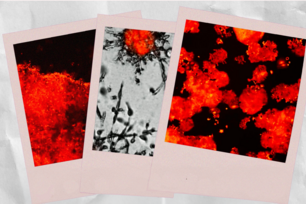Robert A. Weinberg
The Weinberg Lab studies the processes by which cancer cells invade and metastasize.
455 Main Street
Cambridge, MA 02142
United States
Achievements & Honors
Research Areas
Affiliations
Question
How do cancer cells within a primary tumor acquire the ability to invade and spread to the rest of the body?
Approach
Weinberg’s lab studies the interactions between epithelial and mesenchymal cells, the two major types of cells found in mammalian tissue, how epithelial cells produce carcinomas, and how carcinoma cells spread throughout the human body—the process of metastasis.
Weinberg’s lab is also focusing on a small set of transcription factors—master regulator proteins that control gene expression––and how these proteins contribute to carcinoma cells’ ability to metastasize. Weinberg and his team are examining mechanisms by which tumors can reactivate the properties of these proteins that are active during embryonic development and exploit these transcription factors to execute various steps of the “invasion-metastasis cascade” —the sequence of steps that enables primary tumor cells to spread throughout the body and seed metastatic colonies.
Additionally, Weinberg lab scientists are studying the role of cancer stem cells—the self-renewing, tumor-seeding cells that have been found in a number of solid tumors over the past decade. In 2008, they reported a finding that brings together these two research themes: cancer cells induced to follow one of these embryonic pathways gain many of the properties of adult stem cells.
Bio
A Founding Member of Whitehead Institute and a National Medal of Science recipient, Robert A. Weinberg is a pioneer in cancer research most widely known for his discoveries of the first human oncogene—a gene that can cause normal cells to form tumors—and the first tumor suppressor gene. Weinberg, who received his PhD in biology from MIT in 1969, received post-doctoral training at the Weizmann Institute and the Salk Institute, and joined the MIT faculty in 1972. In 1982, Weinberg both helped found Whitehead Institute and published his landmark paper "Mechanism of Activation of a Human Oncogene" in the journal Nature.


